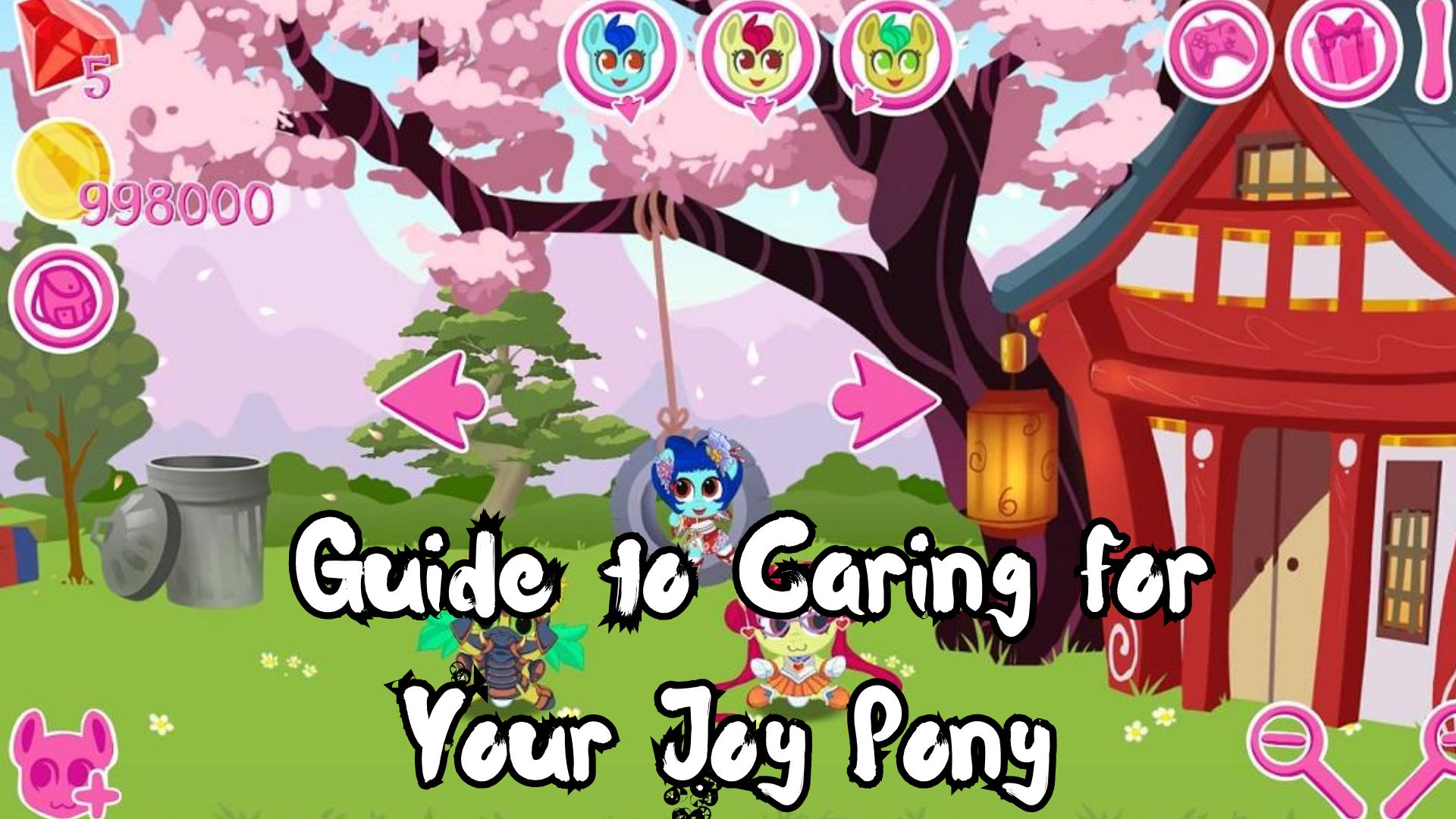Owning a Joy Pony can be a delightful and rewarding experience. These charming miniature ponies are known for their friendly demeanor, intelligence, and versatility. However, like any pet, they require proper care and attention to thrive. This comprehensive guide will cover everything you need to know to ensure your Joy Pony remains healthy, happy, and well-adjusted.
Understanding Your Joy Pony
Characteristics and Temperament
Joy Ponies are small, often standing between 30 to 38 inches tall. They possess a friendly and gentle temperament, making them great companions for both children and adults. Their intelligence and eagerness to please make them relatively easy to train, but this also means they need consistent mental stimulation to avoid boredom.
Lifespan
With proper care, Joy Ponies can live up to 25-30 years, providing a long-term companionship. This long lifespan underscores the importance of committing to their care and well-being.
Housing and Environment
Shelter
Your Joy Pony will need a safe and comfortable shelter to protect them from the elements. A well-ventilated, dry barn or stable is ideal. Ensure the shelter is free from hazards and provides ample space for your pony to move around. Bedding such as straw or wood shavings should be clean and dry to prevent health issues like respiratory problems or hoof infections.
Pasture
Joy Ponies thrive in environments where they have access to ample pasture. A well-maintained pasture provides not only food but also space for exercise. Ensure the pasture is free from toxic plants and has secure fencing to prevent escape or injury. Rotating pastures can help maintain grass quality and reduce the risk of overgrazing.
Nutrition and Feeding
Basic Diet
A Joy Pony’s diet should consist mainly of high-quality forage, such as grass or hay. Forage is essential for their digestive health and provides the bulk of their nutritional needs. Aim to feed your pony at least 1-1.5% of their body weight in forage daily.
Supplements and Concentrates
Depending on your pony’s age, health, and workload, they may require additional supplements or concentrates. Commercial pony feeds are available that cater specifically to their nutritional requirements. Always consult with a veterinarian or equine nutritionist to determine the best feeding regimen for your
Joy Pony.
Water
Access to fresh, clean water at all times is crucial. Joy Ponies can drink between 5-10 gallons of water per day, depending on the weather and their activity level. Regularly check and clean water troughs or buckets to ensure the water remains uncontaminated.
Health and Veterinary Care
Regular Check-Ups
Routine veterinary check-ups are essential to monitor your pony’s health and catch any potential issues early. Annual vaccinations, dental care, and deworming are standard components of a comprehensive health care regimen.
Hoof Care
Regular hoof maintenance is critical for your Joy Pony’s overall health. Schedule hoof trims every 6-8 weeks with a qualified farrier. Daily cleaning and inspection of hooves can prevent infections and other issues.
Common Health Issues
Be aware of common health issues that can affect Joy Ponies, such as laminitis, colic, and obesity. Recognizing the early signs of these conditions can significantly improve the outcome of treatment. Maintaining a balanced diet, proper exercise, and regular veterinary care are key preventive measures.
Training and Exercise
Basic Training
Training your Joy Pony helps establish a strong bond and ensures they are well-behaved. Start with basic commands and gradually introduce more complex tasks. Positive reinforcement techniques, such as treats and praise, are highly effective.
Exercise
Regular exercise is vital for maintaining your pony’s physical and mental health. Activities can include walking, trotting, and playful interactions. Ensure your pony has enough space to run and play, both in their pasture and during supervised exercise sessions.
Mental Stimulation
Joy Ponies are intelligent and need mental stimulation to prevent boredom. Provide toys, obstacles, and varied activities to keep them engaged. Training sessions that challenge their intellect can be very beneficial.
Grooming
Daily Grooming
Daily grooming helps maintain your pony’s coat and allows you to check for any signs of injury or illness. Use a soft brush to remove dirt and loose hair, and a comb to detangle the mane and tail. Pay attention to sensitive areas and be gentle.
Seasonal Grooming
During shedding seasons, typically in spring and fall, you may need to groom your pony more frequently to manage the extra hair. Clipping may be necessary in warmer climates to keep your pony comfortable.
Socialization and Companionship
Interaction with Humans
Joy Ponies are social animals and thrive on interaction with humans. Spend quality time with your pony daily to strengthen your bond. Training sessions, grooming, and simply being present are all important aspects of their socialization.
Interaction with Other Animals
If possible, provide your pony with companionship from other equines or suitable animals. Social interaction is crucial for their well-being. Introducing new animals should be done gradually and under supervision to ensure compatibility.
Special Considerations
Weather Protection
Joy Ponies are resilient but still require protection from extreme weather conditions. In hot weather, ensure they have access to shade and plenty of water. In cold weather, provide adequate shelter and consider blanketing if necessary.
Traveling with Your Joy Pony
When traveling with your pony, safety is paramount. Use a well-ventilated, secure trailer designed for equines. Make sure your pony is comfortable and has enough space to move during the journey. Frequent stops for water and rest are essential on long trips.
Emergency Preparedness
First Aid Kit
Keep a well-stocked equine first aid kit on hand. It should include bandages, antiseptic solution, wound care products, and any medications your pony may need. Familiarize yourself with basic first aid procedures.
Emergency Contacts
Have a list of emergency contacts, including your veterinarian, farrier, and nearby equine hospitals. Quick access to professional help can make a significant difference in an emergency.
Conclusion
Caring for a Joy Pony is a rewarding experience that requires commitment and knowledge. By providing proper housing, nutrition, health care, training, and social interaction, you can ensure your pony leads a happy, healthy, and fulfilling life. Remember, the bond you build with your Joy Pony will be a source of joy and companionship for many years to come. With this ultimate guide, you’re now equipped with the essential tips and tricks to give your Joy Pony the best care possible. Embrace the journey, and enjoy every moment with your delightful equine friend.

